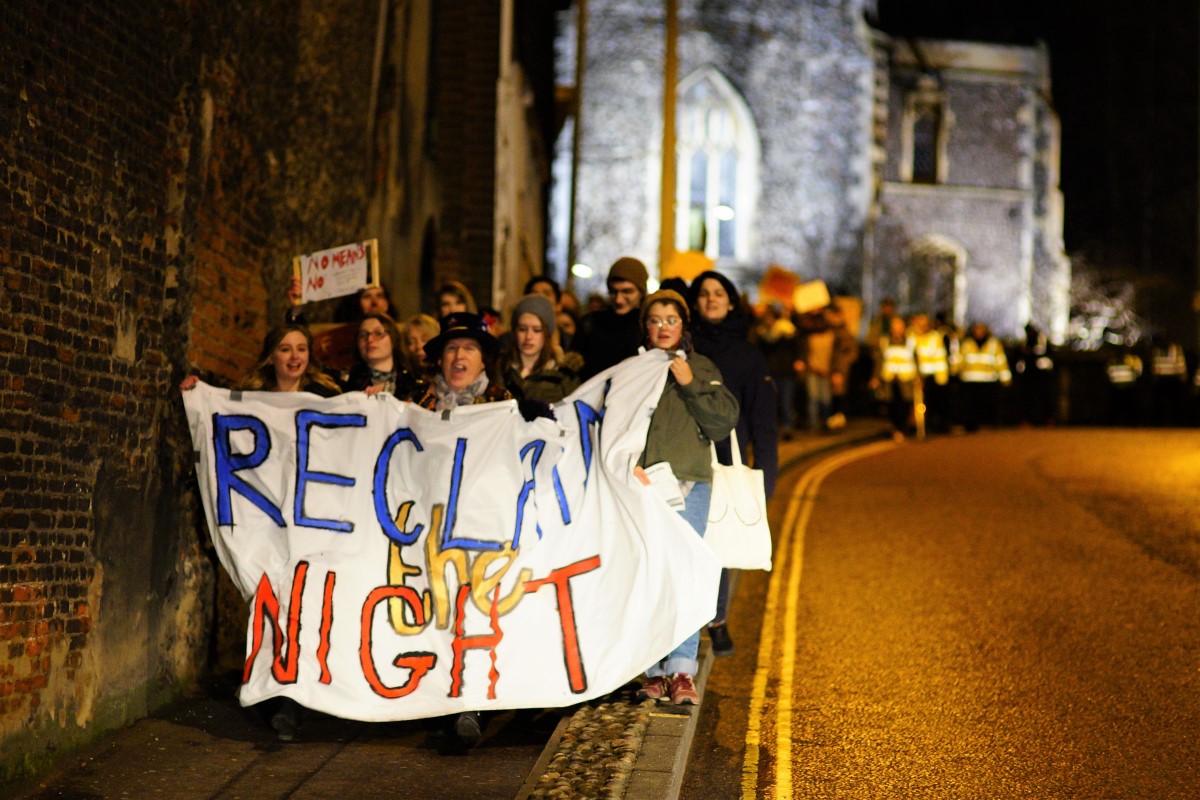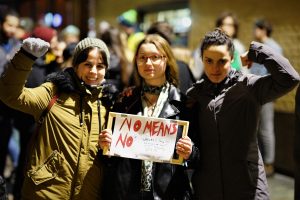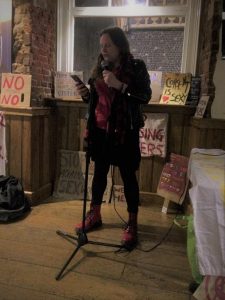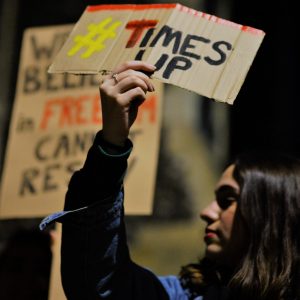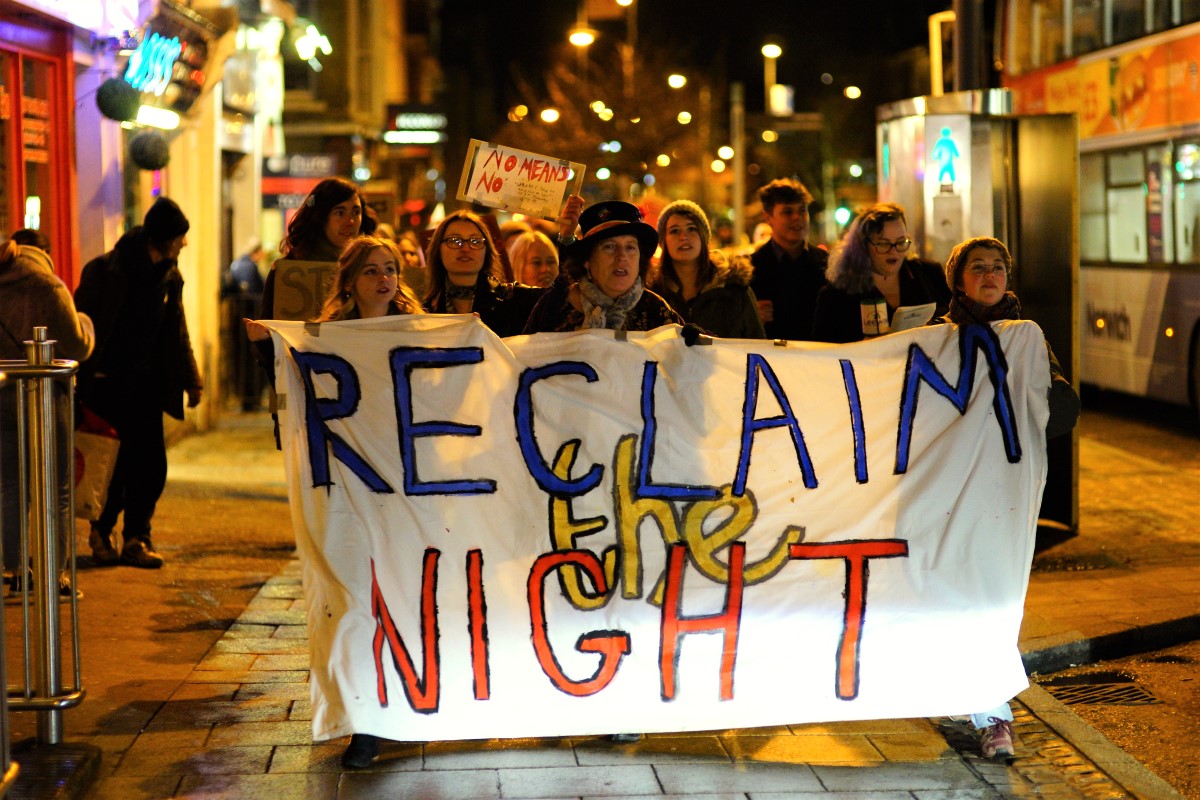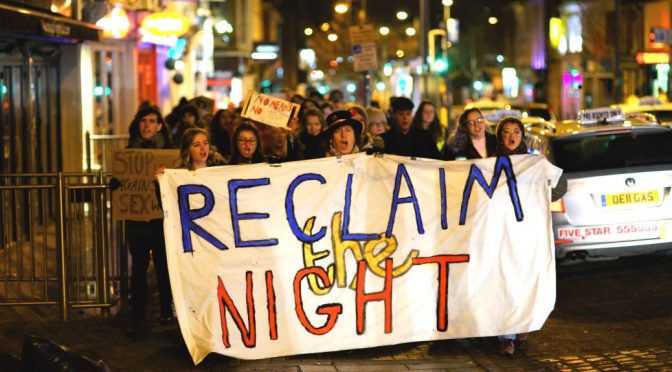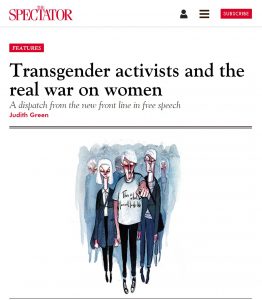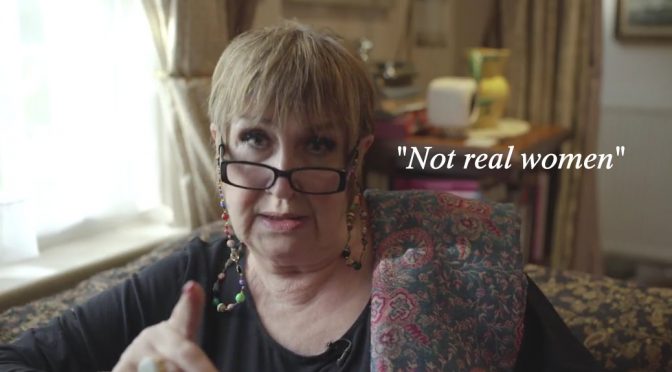International ‘Real’ Women’s Day
On this day, each year, I usually write about current social issues worldwide that affect women disproportionately. I often quote my sheroes – Audre Lorde, Simone de Beauvoir, Malala Yousafzai, Muzoon Almellehan, Ellen DeGeneres, Michelle Obama, Lady Gaga and so many more. Alternatively, I’d be railing against Islamic State (ISIL), Boko Haram, Al Shabaab, extreme sharia or tribal law sex-based violence used to oppress. Instead, it’s the voice of BBC Woman’s Hour, Dame Jenni Murray that is still ringing in my ears.
Jenni Murray defining Women
On Sunday, Murray decided to wade into the “are trans women real women debate?” She prefaced her article in The Sunday Times with “I’m not a transphobe but…” along with “I’m not a radical feminist” either.
“I am not transphobic or anti-trans. Not a Terf in other words. That’s trans-exclusionary radical feminist, to use one of the often-confusing expressions that have entered the language in this age of gender revolution. I’ll admit to feminist, but radical or separatist? No…” – Jenni Murray
The article was doomed from then, as that is how so many of the “I’m not a racist but…”, or “I’m not anti-gay but…” arguments begin. I bit my lip and pressed on, trying to remain open to rational argument. On the one hand, I actually agree with her – trans women do not experience life the same as “women born women” – or rather raised as girls and sometimes, as feminism argues, oppressed as women by the so-called patriarchy – some MRAs have challenged me to look at that term again, in the 21st century West, anyway. Perhaps it is now better seen as a kyriarchy, in the UK at least with its several queens and two female prime ministers.
On the other hand, neither do any two women have the same experiences. Birth, school, puberty, bullying, sexuality are near-universal human experiences and we all experience them differently.
“if womanhood is defined as the sum of everything that has ever happened to a woman because of her gender, then logically nobody born with male organs can ever quite attain it. It’s tantamount to saying that you can only be a woman if you’ve always been treated as one.” – Gaby Hinsliff, Guardian
Not all women experience oppression equally – wealth, class, and education, come into play as much as gender. To define ‘real’ women as only those who have experienced sexism or assault is ludicrous.
“Although a person’s sex as male or female stands as a biological fact that is identical in any culture, what that specific sex means in reference to a person’s gender role as a woman or a man in society varies cross culturally according to what things are considered to be masculine or feminine.” – Wikipedia definition
It is not automatic that a trans woman experiences life with “male privilege” before feeling gender dysphoria, bullying, self-harm, suicidal ideation, and internalised oppression – that, to date, psychological therapies have failed to cure, to the point where most psych associations now regard any attempt to as unethical.
If anything, it is the language of the article that is the problem. As soon as one starts defining a “real” woman, one has to question what characteristics make up that definition?
“Gender refers to the socially constructed characteristics of women and men – such as norms, roles and relationships of and between groups of women and men. It varies from society to society and can be changed.” – WHO definition
Clearly, the answer is not someone resembling the impossibly proportioned Barbie or Sindy, but I’m not going to get into thin-waist, hourglass figure shaming – a shame cisgender girls and transfeminine teens alike will find nigh on impossible to emulate.
The debate about “real” women runs dangerously close to policing sex/gender and a form of CisAryanism as Jane Fae notes:
Not “am I a real woman?”, but “am I a pure one?” – Jane Fae
Sex and gender spectra -whether biological or psychological (still part of the body-mind/neurology entity, I’m not a Cartesian dualist) defy the possibility of a single archetype of default woman, and as soon as one does it creates the possibility of discrimination and judgement upon anyone not conforming, passing, meriting, having perfect reproductive systems, or preferring same-sex or childless relationships.
Indeed, as Jane Fae draws attention to, Jenni Murray seems to define herself as a non-TERF by pointing out her marriage to a man and raising of “two fine sons” as if that explains her moderate feminism and typical womanhood. On the other hand, Julie Bindel said in response to what does being a woman mean:
“I have no idea what it feels like to be a woman. I don’t do gender. It is harmful and a total social construct that serves to reinforce patriarchy and women’s subordination to men. I wish to eradicate gender – that is the feminist goal…” – Julie Bindel, New Statesman
“trans women are not just women. They are female. This is a hang-up on the part of many feminists who are still stuck in some world where biology is destiny (oh, the irony!). Because if ‘woman’ is a social construct, and deBeauvoir was right, we become women by living as women in the world, by facing oppression based on gender. For some women, that social conditioning starts with birth, because of a vagina and a doctor’s declaration. For others, it starts at 15, or 45, or 75.” – Helen Boyd, author My Husband Betty
Some have argued that Murray would have been better writing about “natal” or “natural” women. On the former, I might quote, out of context but not without relevance, Simone de Beauvoir, from The Second Sex, introduction (1949):
“One is not born a woman, but becomes one.”
Or so many more of de Beauvoir’s thoughts:
One wonders if women still exist, if they will always exist, whether or not it is desirable that they should…”
“It would appear, then, that every female human being is not necessarily a woman; to be so considered she must share in that mysterious and threatened reality known as femininity. Is this attribute something secreted by the ovaries? Or is it a Platonic essence, a product of the philosophic imagination?”
“Thus humanity is male and man defines woman not in herself but as relative to him.”
“She is defined and differentiated with reference to man and not he with reference to her; she is the incidental, the inessential as opposed to the essential. He is the Subject, he is the Absolute – she is the Other.”
Othering Trans Women
The irony that the argument of feminism and women’s liberation that women should not be defined as ‘other’ in relation to men, but should be equal in their own right, seems lost.
Now, however, trans women are defined as “other”, as the “third sex”, as women and LGB people were before them. Then there are those whose bodies are ‘other’ yet forcibly conformed to binary male or female. Dividing the human race into very strict boxes of men and women and who can be in them is erasing of intersex people, third gender folk from dozens of cultures and traditions around the world.
Denying trans women membership of the cisterhood, only perpetuates what had previously been done to women by men in power of old – or not so long ago.
Intersectional Feminism
I’ve no personal problem with being othered, or with not belonging, I’ve accepted that in life, but I shouldn’t need to and will fight my feminist sisters for their inclusion and my trans sisters to show some respect and learn some history. Both groups have very different forms of privilege, since much privilege is relative, and we need to look inside ourselves and our experiences to recognise that.
“Trans women are men”
Writing to the Daily Telegraph Letters page, Una-Jane Winfield writes that a proposed change to recognise gender identity and not just gender transition would have:
“extremely damaging consequences, especially for women at work and in public spaces, forcing them to accept non‑native women in their midst.
Dame Jenni Murray is right to draw attention to the privileged claim of ‘trans women’, who are socialised lifelong men, not women.
The change is not wanted by the 50 per cent of the human race called women, and it is an ‘equalities law”’ too far.”
To me, Winfield and Murray’s arguments are summed up in their attempting to speak for all women, without a referendum!
Biological Essentialism & Determinism
Furthermore, they define women just as men used to do, by the presence of a womb, ovaries, ability to conceive, or by the experience of puberty, menstruation, menopause – the very biological essentialism and reproductive value that women’s liberation and feminism sought to overcome. Now, some feminists are resorting to those self-same arguments to define themselves in opposition to trans women (men in their eyes).
“woman means something. It means sexual biological woman.”- Comment on Independent article
I’ll reiterate Simone de Beauvoir here because I think Winfield and Murray need to read it again themselves:
“every female human being is not necessarily a woman; to be so considered she must share in that mysterious and threatened reality known as femininity. Is this attribute something secreted by the ovaries?”
They speak unelected for all women, and stereotype all trans women as men in frocks, persisting in male criminality, wanting to forcibly invade women’s spaces etc. In their over-egged gender essentialist simplicity they ignore non-binary, assigned female at birth (AFAB) trans men, intersex people and folk like me who don’t give a fuck about labels and access to women’s spaces, unless I’m invited.
To paraphrase de Beauvoir,
“not every male human being is necessarily a man.”
I’m with Kate Bornstein, author of Gender Outlaw, who upon transitioning declared she was “no longer a man, but not entirely female.” Like her, I identify as non-binary, recognise my male past (despite a brief designation of female at birth and an endocrine puberty disorder), but don’t wholly identify with being a woman, but many trans women do.
What Is this, the 1950s?
Their binary defensiveness is a going backwards, when we should be going forwards together as so many younger inclusive feminists are. That said, some trans women need a Feminism 101 history lesson to avoid their gender presentation and attitudes being interpreted as wanting to be subjugated women in twin sets and pearls, tied to the kitchen sink, actually enjoying ironing.
“presenting womanhood as being about little more than cute outfits and chasing boys” – Meghan Murphy, Feminist Current
Young trans people are now diversifying the range of trans and non-binary gender presentations, so that old accusations of female parody and imitation are no longer true.
Some of the comments on news articles about this feel like Daily Mail readers are now reading all the other papers too. In the year that celebrates the 50th anniversary of the partial decriminalisation of homosexuality and we are back to determining which LGBTIQA+ people have rights, and it is some of the older Lesbians and Gays, as well as straight traditionalists who are opposing rights for trans and genderqueer people.
“Trans are not women. LBGT thing is a nonsense.” – Comment on Daily Telegraph article
“Gender appropriation in action.” – Comment on Independent article
“the Trojan horse of transvestite men’s “rights” to steal biological women’s rights” – Comment on Independent article
In addition, I’ve had “gay eugenics” thrown up this week, the idea that trans people are erasing gays and lesbians, the erroneous idea that easily obtainable without medical ethics puberty blockers and hormones are forced upon teenagers to prevent them discovering their sexuality! Somewhat similar to the “butch erasure” touted by some lesbian feminists such as Sheila Jeffries, Julie Bindel et al, not respecting the feminist rights of their “assigned sisters at birth” who want to express their gender identity as male psyche and body now. Some have even created the term ftMysognist to describe those leaving the lesbian fold because of transition.
No Two Women…are the same
It’s not that trans women are the same as natal women, it’s that no two women are the same either. Then there are intersex variations, for example, from 1-in-1000 to as many as 1-in-100 births can be gender indeterminate at first sight during birth, many are then conformed by non-consensual (on the part of the child) surgery to a pseudo-sex binary. There are natal ‘girls’ raised as female who turn out to have XY chromosomes as part of Androgen Insensitivity Syndrome (AIS) or 5α-Reductase deficiency (5-ARD) and whose sex and gender identity is more often identified as young adults. See Anne Fausto-Sterling’s Sexing the Body or Sex/Gender: Biology in a Social World for more on intersex prevalence and sex diversity.
“Man A: I have an XXY chromosome set with Partial Androgen Insensitivity Syndrome, so that’s two elements of intersex in one body. I have one ovary, a uterus, and a vagina (via vaginaplasty and labiaplasty) behind my scrotum, but I also have a functional penis and one testicle. I have no body hair, female skeleton, and I menstruate. In the old days, they used to call people like me a “true hermaphrodite,” but that is not the modern term. So I play the role of male, knowing that I am biologically neither male nor female.” – Cosmopolitan
This person would confuse Jenni Murray’s simple categories of man, trans woman and real woman.
Natal, natural, nature, whatever you want to call it all create ‘real’ variations in human bodies and brains, in-utero and post-utero. Just read Evolution’s Rainbow: Diversity, Gender and Sexuality in Nature and People by evolutionary biologist Joan Roughgarden.
“To acknowledge different experiences is to start to move towards more fluid – and therefore more honest and true to the real world – conceptions of gender.” – Chimamanda Ngozi Adichie
Trans are a small minority, why bother?
The number of comments on Jenni Murray’s and response articles suggesting that trans are a minority and therefore should not be accommodated reeks of “the tyranny of the majority”.
“Trying to fully accommodate and integrate the relatively very few transgender people into a society constructed around 2 distinct sexes is I think, almost impossible.” – Comment on The Times article
“why so much hot air is being expended on such a small part of the population” – Comment on Daily Telegraph article
Actually, the number of trans, non-binary, and/or intersex people (these categories can overlap) exceeds the number of wheelchair users, yet we rightly make adjustments for them. Indeed, gender reassignment is a protected characteristic in equality law, whatever anyone’s personal beliefs and reasonable adjustment, gender recognition, and the avoidance of discrimination are legal requirements. Are we not stronger together, even if we are different?
“I am not free while any woman is unfree, even when her shackles are very different from my own.” – Audre Lorde
Debate speech not hate speech
If you want to follow some of the discussion there’s debate, and not a little hate, on facebook here and here, as well as in the comments sections of some of the articles cited above in The Times, (and this one), Telegraph, Guardian, Independent, Feminist Current and Pink News.
Again, I actually have no problem with Jenni Murray having the discussion, although many do, I’m into respectful, fair and free speech, and debate not no-platforming (unless inciting hate and violence). As a result, I will challenge her argument (essentially that ovaries and oppression make a woman) and not attack her person as some have done, deplorably. This debate about who is a woman still raises heckles on all sides, that it does, shows we are not there yet. Roll back 50 or 150 years and people were questioning race, colour and sexuality, as not equal to white western heterosexual man. Let’s thrash this out but without attacking individuals. Science and society have moved on from these out of date views but airing them still shows how retrograde they are.
Oxford University History Society
Whether Jenni Murray is “transphobic” or not has come back to haunt her in November 2018 as an invite for her to speak at Oxford Uni HistorySoc was condemned by LGBTQ & Women’s liberation socs there leading to uproar in the Spectator, Daily Telegraph and more, and eventually for Dame Jenni’s withdrawal from speaking.
